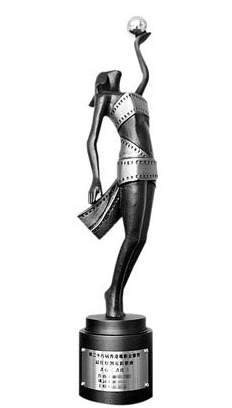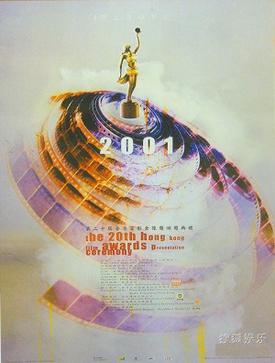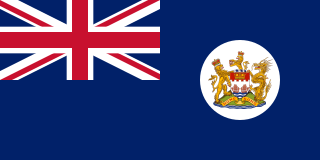
The action film is a film genre that predominantly features chase sequences, fights, shootouts, explosions, and stunt work. The specifics of what constitutes an action film has been in scholarly debate since the 1980s. While some scholars such as David Bordwell suggested they were films that favor spectacle to storytelling, others such as Goeff King stated they allow the scenes of spectacle to be attuned to story telling. Action films are often hybrid with other genres, mixing into various forms ranging to comedies, science fiction films, and horror films.

Wong Kar-wai is a Hong Kong film director, screenwriter, and producer. His films are characterised by nonlinear narratives, atmospheric music, and vivid cinematography involving bold, saturated colours. A pivotal figure of Hong Kong cinema, Wong is considered a contemporary auteur, and ranks third on Sight & Sound's 2002 poll of the greatest filmmakers of the previous 25 years. His films frequently appear on best-of lists domestically and internationally.

The cinema of Hong Kong is one of the three major threads in the history of Chinese-language cinema, alongside the cinema of China and the cinema of Taiwan. As a former British colony, Hong Kong had a greater degree of political and economic freedom than mainland China and Taiwan, and developed into a filmmaking hub for the Chinese-speaking world.

Fruit Chan Gor is a Hong Kong filmmaker who is best known for his style of film reflecting the everyday life of Hong Kong people. He is well known for using amateur actors in his films. He became a household name after the success of the 1997 film Made in Hong Kong, which earned many local and international awards.

The Hong Kong Film Awards, founded in 1982, is an annual film awards ceremony in Hong Kong. The ceremonies typically take place in April, and have mostly been held at the Grand Theatre of the Hong Kong Cultural Centre since 1991. The awards recognise achievement in various aspects of filmmaking, such as directing, screenwriting, acting and cinematography. The awards are regarded as the Hong Kong equivalent of the Academy Awards.

The handover of Hong Kong from the United Kingdom to the People's Republic of China was at midnight on 1 July 1997. This event ended 156 years of British rule in the former colony, which began in 1841.

This is a list of films produced in Hong Kong ordered by decade and year of release in separate pages. For film set in Hong Kong and produced elsewhere see List of films set in Hong Kong.

Ceremony for the 20th Hong Kong Film Awards was held on 29 April 2001 in the Hong Kong Cultural Centre and hosted by Eric Tsang, Carol Cheng, Gigi Leung and Eric Ng. Eighteen winners in eighteen categories were unveiled. The year's biggest winner was Crouching Tiger, Hidden Dragon, which received eight awards, one award short of the record set by Comrades: Almost a Love Story in 1997. Besides the sixteen regular categories, the 20th Hong Kong Film Awards also presented two special awards, Lifetime Achievement Award and Professional Achievement Award, to veteran actress Pak Suet Sin and action choreographer Yuen Wo Ping respectively.

The 17th Hong Kong Film Awards ceremony, honored the best films of 1997 and took place on 26 April 1998 at Hong Kong Academy for Performing Arts, Wan Chai, Hong Kong. The ceremony was hosted by Carol Cheng and Cheung Tat Ming, during the ceremony awards are presented in 17 categories.

Ceremony for the 16th Hong Kong Film Awards was held on 13 April 1997 in the Hong Kong Cultural Centre and hosted by Lydia Shum and Nancy Sit. In total, sixteen winners in fifteen categories were unveiled. Peter Chan's Comrades: Almost a Love Story became the biggest winner for the year with nine awards, setting the record for the highest number of categories won by a single film. The event also marked the last time the Hong Kong Film Awards was held while under British colonial rule.

Hong Kong was a colony and later a dependent territory of the United Kingdom from 1841 to 1997, apart from a period of Japanese occupation from 1941 to 1945 during the Pacific War. The colonial period began with the British occupation of Hong Kong Island in 1841, during the First Opium War between the British and the Qing dynasty. The Qing had wanted to enforce its prohibition of opium importation within the dynasty that was being exported mostly from British India and was causing widespread addiction among the populace.
This page is based on this
Wikipedia article Text is available under the
CC BY-SA 4.0 license; additional terms may apply.
Images, videos and audio are available under their respective licenses.











